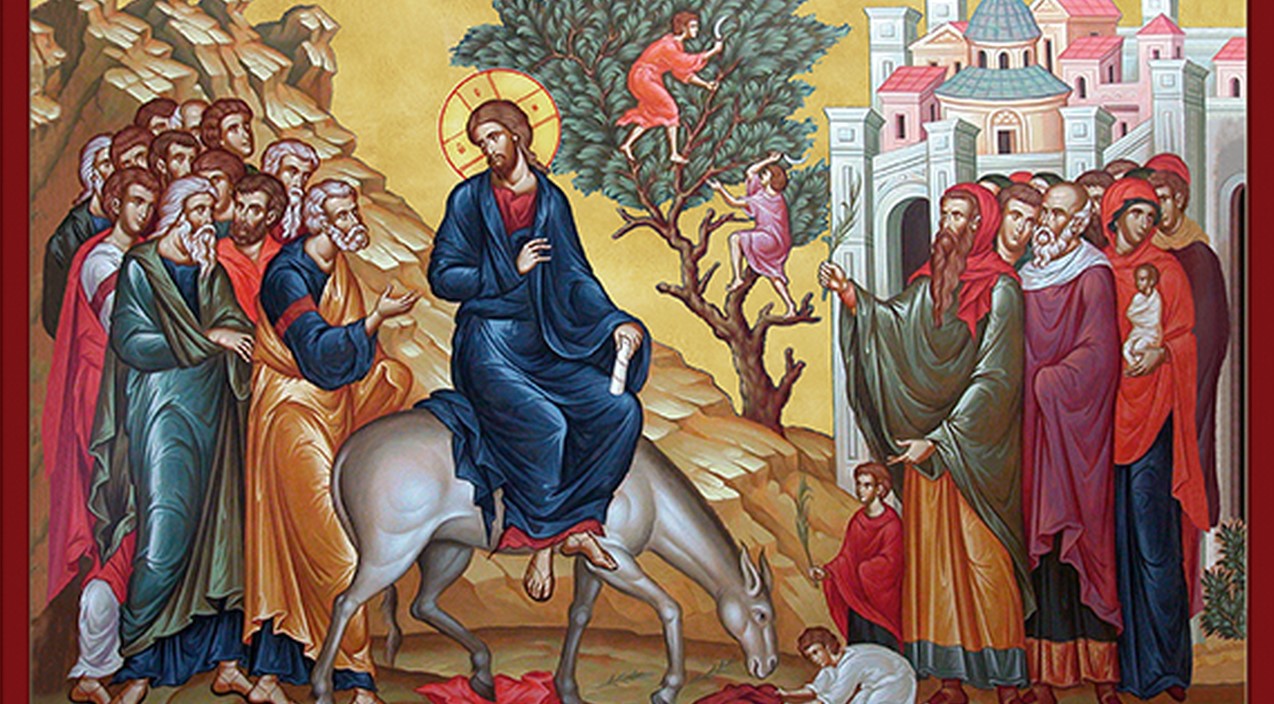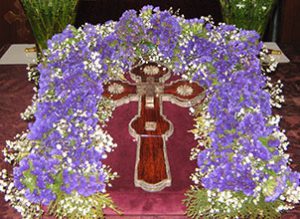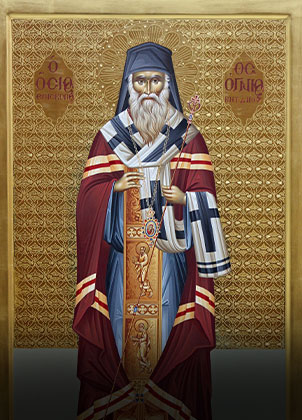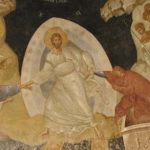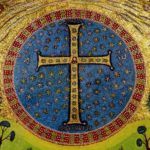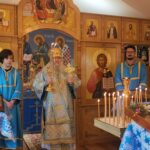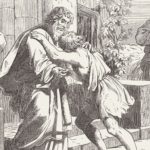In the name of the Father and of the Son and of the Holy Spirit.
The entrance of our Lord into Jerusalem, which we celebrate today, was something extraordinary. Though Jesus Christ many times came to Jerusalem for Jewish feasts, but it was never in such a festive manner. He always traveled on foot, nowhere else in the Gospel is it mentioned that the Lord rode on an animal. The days of His extreme humiliation were at hand, and it was needful to show Himself to His people as the Messiah, the King of Israel. Everything obeys and submits to the Lord in His entrance: crowds glorify Him, little children announce Him to be the Son of David, i.e. the Messiah; animals serve Him, and the untamed colt walks obediently. Even His enemies withdraw and yield powerlessly until a favorable time.
This triumphal entrance took place, when hatred of the High Priests reached its peak, when Jesus Christ had been officially sentenced to death by the council of elders, when everyone was supposed to inform the council of the whereabouts of Jesus, so that He might be arrested.
The entrance of the Lord into Jerusalem was both triumphal and humble. He mounts not a horse, but a young ass, he is surrounded by a crowd of his followers, poor and simple people. Little children exclaim His praise.
Foreseeing this, the prophet Zachariah announced: “Rejoice greatly, O daughter of Zion! Shout, O daughter of Jerusalem! Behold, your King is coming to you; He is just and having salvation, lowly, and sitting on a donkey, a colt, the foal of a donkey”.
Having said: “your King is coming to you”, in order that no one imagine an earthly king, scary, coming with his army, the prophet adds: “He is lowly, and sitting on a colt of a donkey”.
In the ancient times horses and chariots driven by horses were used only for warfare, and in peaceful life bulls and donkeys were used.
Then the prophet continues: “I will cut off chariots from Ephraim and horses from Jerusalem; and the bow of war will be cut off. And He will speak peace to the nations; and His dominion will be from sea to sea, and from the River to the ends of the earth.”
Thus, the King of Israel coming to the daughter of Zion is the King of peace; He will speak peace to the nations and establish His peaceful kingdom over the whole world. – Such is this wondrous prophecy of Zachariah.
When the procession was descending the Mount of Olives and drew near Jerusalem, as the Evangelist Luke describes, the Lord saw the city and wept over it,saying: “If you had known, even you, especially in this your day, the things that make for your peace! But now they are hidden from your eyes. For days will come upon you when your enemies will build a wall around you, surround you and close you in on every side, and they will level you to the ground and your children within you, and they will not leave in you one stone upon another, because you did not recognize the time of your visitation.” This destruction of Jerusalem took place 38 years after, when Romans lead by Titus besieged Jerusalem and put it on fire.
The daughter of Zion didn’t recognize her King in Jesus, the lowly prophet from Nazareth in Galilee, and rejected Him.
The Lord sent the apostles to bring Him the colt; its masters, having heard that “the Lord needed it”, didn’t dare to contest, and let it go. The apostles brought the colt to Jesus and He mounted it.
All this was a prophecy expressed in events. The young ass, who carried no burden yet, symbolized pagan nations, foreign to the yoke of God’s law. The apostles brought the colt to Jesus, and no one prevented them. It showed that the power of the word of Christ would make the mission of the apostles extremely successful, that they would be able to bring the nations to Christ. The untamed colt, which had never been ridden by anyone, didn’t rush, but was obedient and walked calmly. This signified that pagan nations would put aside their sinful life and gladly submit to Christ’s commandments.
This is how it is expressed in the stichera of the Feast. “O Thou Who ridest on the cherubim and art praised by the seraphim…. Thy riding on a foal prefigured how the Gentiles, as yet untamed and uninstructed, were to pass from unbelief to faith.”
But in our times the Christian nations fell away from faith; and the name of Jesus Christ, if ever mentioned, it is rather blasphemed than praised. This apostasy, which is predicted in the Holy Scriptures, shows that the day of the Second Coming of Christ is drawing near. On that day the Heavenly King will come not in a humble form, but as a dreadful Judge and Avenger for iniquity of the nations, who disregard His Passion on the cross for the salvation of men.
Now we meet the Lord coming to Jerusalem to His voluntary Passion, with branches of trees according to the ancient tradition. Let us follow Him every day of this Holy week, participating in the church services. So that we may be witnesses of His last days on earth, His sufferings, and His death, and reach His glorious Resurrection.
Amen.

